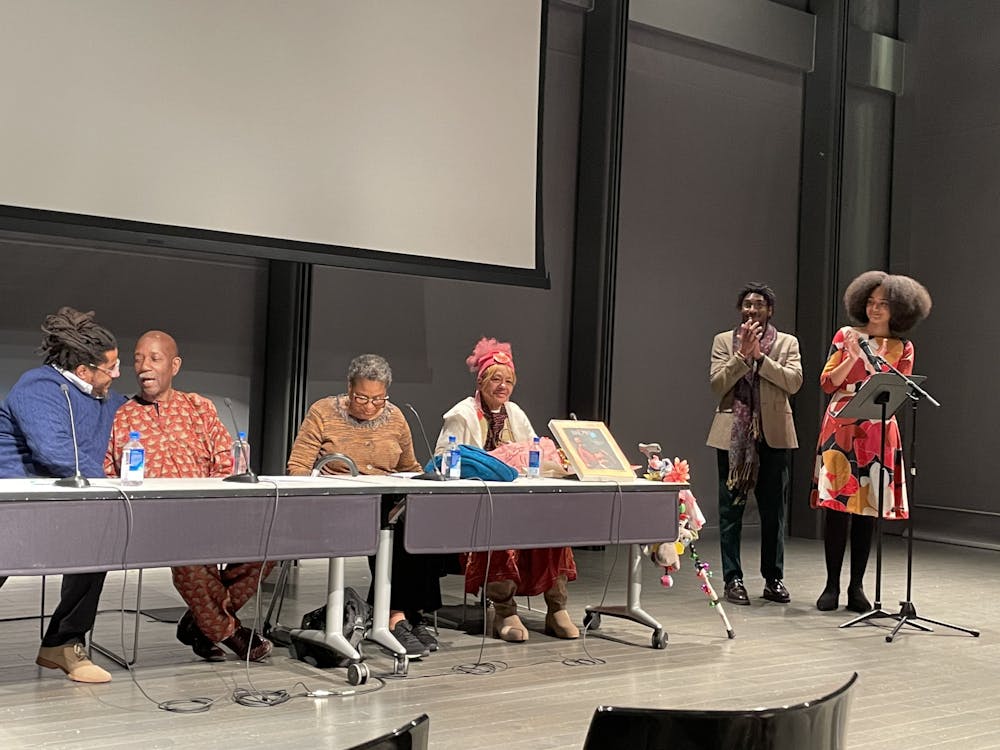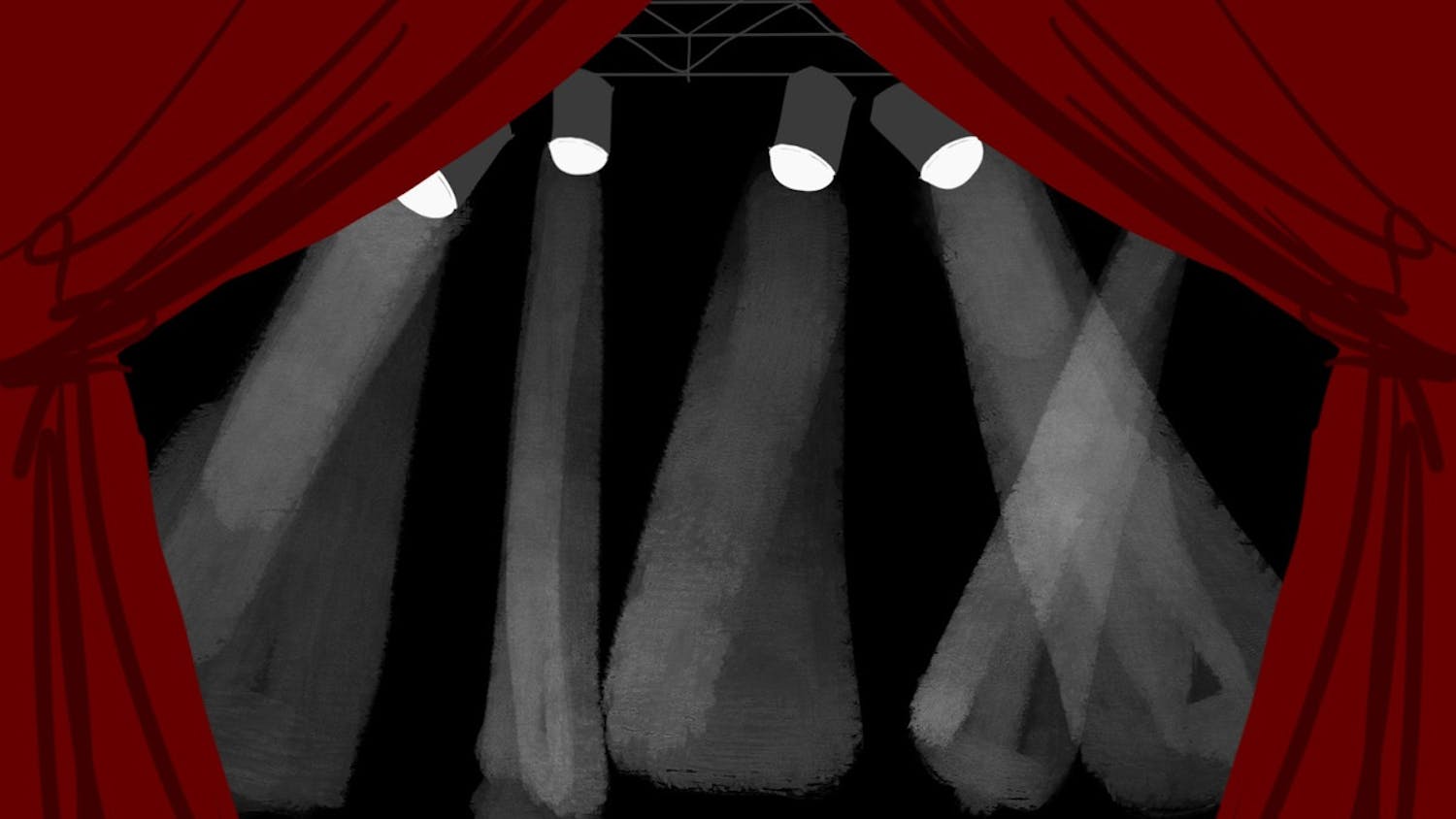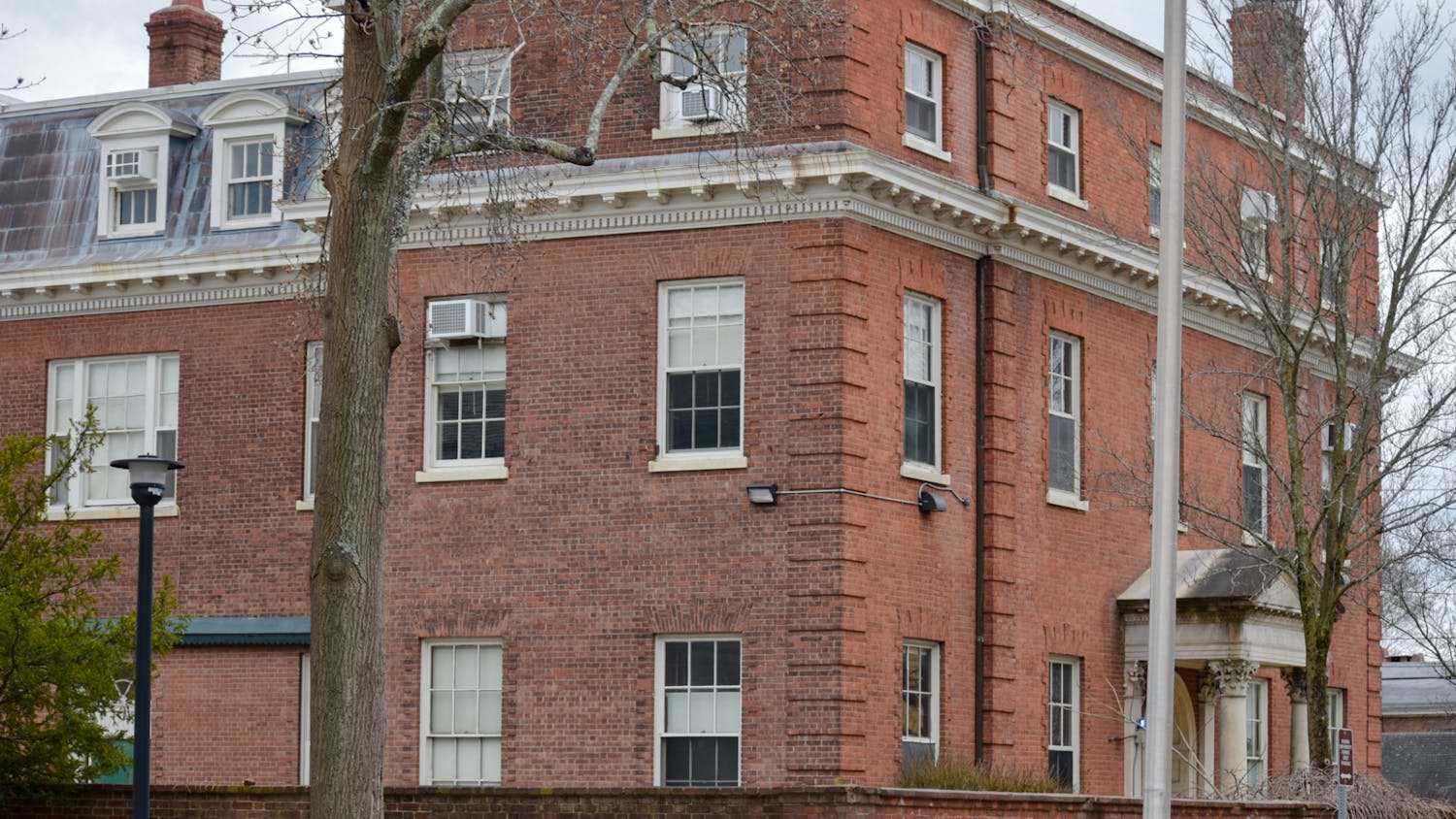Providence community members gathered in the Granoff Center for the Creative Arts Friday, Feb. 10 for a colloquium entitled “The Book of Black Theatre.” The event was hosted by the Department of Africana Studies’ Rites and Reason Theatre, in collaboration with (De)cypher: Black Notes on Cultural Criticism, a social and political journal, as the first act in a three-part series titled “Flipping the Script: RI Histories of Black Community Theatre.”
At the event, the panel highlighted trailblazing Rhode Island creatives who were instrumental to the establishment of Rites and Reason, the Providence Black Repertory Company and the Mixed Magic Theatre.
According to Elmo Terry-Morgan ’74, artistic director of Rites and Reason and associate professor of Africana Studies and Theater Arts and Performance Studies, the event was about offering space for “conversations with innovators of contemporary Black theater in Rhode Island.”
The event featured various forms of storytelling — singing, historical accounts, imagination exercises, music video showings and more — and was conceived and moderated by two PhD students, Melaine Ferdinand-King GS and zuri arman GS.
Ferdinand-King and arman were inspired to put on the event after doing archival work with Lisa Biggs, assistant professor of the arts and Africana studies.
“Experiencing the archive was like returning from a swim to find new skin laid out for me by familiar hands I never met in this lifetime,” arman said. “I suppose that’s what an elder does. They contextualize, they refresh our eyes and they guide without steering, allowing creative liberties while providing the necessary wisdom time has not afforded me yet.”
A history of Black community theater in R.I., Rites and Reason
The Rites and Reason Theatre has held workshops open to all community members, co-hosted collaborative festivals with members from various educational and artistic institutions in Rhode Island and produced many shows since its creation, according to Ferdinand-King.
The theater was born out of student advocacy and faculty-student collaboration, Terry-Morgan said. George Bass, a late faculty member of playwriting and Afro-American studies, now known as Africana studies, founded The Rites and Reason Theatre in 1970. Bass, a University community member, creative and mentor, served as assistant to legendary 20th-century poet Langston Hughes.
Panelist Ramona Bass-Kolobe ’72, who was married to Bass, participated in the 1968 student walkout, part of the on-campus advocacy that helped establish Rites and Reason at Brown — making it the first and only Black theater in the Ivy League at the time.
The theater’s central focus was to make performance art accessible and “collaborative, rather than hierarchical,” according to audience member Gina Rodriguez ’08.5, who worked at Rites and Reason as a student.
Bass-Kolobe recalled how her late husband’s impact shone through Rites and Reason’s innovative and immersive performance methods.
Bass’s legacy also spans far beyond the confines of the University, Terry-Morgan noted. He added that Bass worked tirelessly to break down the division between “gown and town,” addressing the ways Black people were systematically pushed out of their neighborhoods and excluded from local communities.
According to Terry-Morgan, Rhode Island’s Black theater history is important to understand given the untraditional paths taken and the unwavering dedication of the community’s leaders. “Otherwise, people show up and assume (the theater) has always been here and been well-funded,” he said.
The Rites and Reason Theatre brought together not just performing arts students, but people of all concentrations and Black theater professionals, according to panelist Donald King ’93, founder of the Black Repertory Company.
Community theater vs. regular theater
Panelists also compared the difference between conventional and community theater to the difference between performing and storytelling.
Storytelling is “something you can share wherever you are,” Bass-Kolobe said, whereas theater performance creates a “colonial barrier” through the physical and metaphorical curtain drawn to exclude those who cannot pay for tickets.
For Bass-Kolobe, theater is a community art form that flourishes far past the bounds of the stage. Whether “I’m on the street (or) I’m at the bus stop, I’m doing theater,” she said.
King noted that he “never had the luxury of making things just about ‘theater.’” For him, it’s much more personal. “My community is here,” King said.
While there may be a perception of community theater “not working at the highest level,” according to Karen Allen Baxter, the former senior managing director for the Rites and Reason Theatre, Providence’s Black theater circles redefined “community” as something rooted in intimacy, support and reliability.
Financing Black theater
Today, the matter of funding continues to pose challenges for members of Providence’s Black theater community. According to panelist Ricardo Pitts-Wiley, this is especially the case when grant proposals inquire about the theaters’ intentions to center diversity, equity and inclusion.
Instead of recognizing the obvious diversity of Black theaters, many investors choose to allocate finances and resources to white theaters “centering DEI” over Black theaters that are unquestionably diverse, Pitts-Wiley said.
On the other hand, “from day one, we were diverse and inclusive,” Pitts-Wiley added.
Bass-Kolobe recommended that the new generation of Black community theater ask themselves whether funders “expect to be shareholders or sharecroppers” in the relationship between Black artists and investors.
“My hope and my prayer is that building forward, artists shouldn’t have to be in the bottom rung economically,” Bass-Kolobe added.
Maintaining these Black artistic institutions has opened the door to “mythical Afro-diasporic transformative experiences,” King said. He recalled “not having a reflection” growing up, and is “honored to have the opportunity to hold a mirror” to Black communities in Rhode Island.
For Ferdinand-King, conversations like these “are an opportunity to honor ancestors and gain insight about carrying Black tradition forward.”
The panelists possess “the radicality of practice in their bravery, courage and gall needed to maintain these important Black institutions,” she said.
“Black people are integral to the art scene in Providence and the creative capital,” arman added. “Even if that fact goes unacknowledged.”





